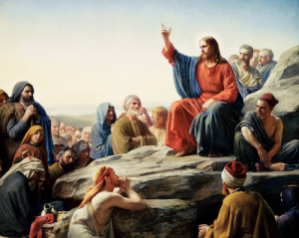The coming global calamity will serve as the official summons to all the earth —the “earth” being, not the literal planet, but rather, the earthlings that inhabit it. As the Christian apostle, Peter, revealed, judgment starts with God’s house first. (1 Peter 4:17) It is against the backdrop of nation rising against nation, global food shortages and searing pestilences, the consuming fire of Jehovah’s judgment will initiate a conflagration among those who hypocritically call upon the name of Jehovah among the leadership of Jehovah’s Witnesses. The prophecy of Isaiah describes it this way:
Although the Watchtower has been instrumental in publishing the name of Jehovah far and wide, the Bethel leadership of the organization has also profaned the name of God and brought reproach it. Indeed, there is a growing apostate influence. But having set themselves on high as the masters of the universe the existence of apostates among the people of God will prove to be as perishable as dried grass and bramble before a roaring fire. Did not Jesus illustrate this very thing when he spoke of the angels uprooting the weeds from among the wheat and casting them into the fiery furnace during the conclusion? The gathering of God’s loyal ones to him will take place outside the purview of the Watchtower Bible and Tract Society. All those who continue to call upon the name of Jehovah during the coming conflagration will be brought into a new reality. Then, Jehovah will place his name upon individuals, rather than an organization. Those individuals are spoken of as having the name of the Father and the Lamb written upon the foreheads. (Revelation 14:1) Obviously, those who refuse to recognize God’s personal name or who embrace the lie that Jesus is God, cannot possibly be among the 144,000 chosen ones who have both the name of the Father and the Lamb written upon them. The 43rd chapter of Isaiah speaks of the gathering of all the earth for judgement, during which time a gathering of all the chosen ones also takes place. What is most notable is that Jehovah’s sons and daughters, those who have been born again as part of the new creation, as was Christ, “the Firstborn of many brothers,” (Romans 8:29) do not simply call on the name of Jehovah; rather, they will be called by his name:
Jesus spoke of this great gathering occurring after the tribulation —the “great storm” that rages all around him, as it is referred to in the 50th Psalm. Jesus said:
After the faithless apostates and imposters are eliminated from among God’s people, the next phase of the judgment begins. After being disciplined to the proper degree for having blasphemed the name of Jehovah, those who continue to call upon the name of Jehovah in truth will receive the spirit in full measure. The prophecy of Joel foretells that after the destruction of the earthly organization God will make compensation, pouring out his spirit upon all who call upon his name. Joel 2:28-32 reads:
Clearly, the name of God is important. Those who refuse to accept it are merely disqualifying themselves from receiving salvation during the great and awe-inspiring day of Jehovah.
If a Christian, and especially a Jehovah's Witness, is asked to provide proof of the existence of God, it is very likely that he will quote verse four of the third chapter of the letter to the Hebrews, "every house is constructed by someone, but the one who constructed all things is God".
The reasoning may be right, nothing came from nothing but everything on earth is due to the will of a designer, it is still good to note that Paul was not trying to argue about the existence of a Creator. He spoke to his Hebrew Christian companions who certainly did not question the fact that the universe was ruled by a powerful being who is behind everything. Moreover, in antiquity the problem was certainly not the non-belief in God but rather the opposite: people tended to believe in a multitude of gods. Furthermore, Paul, on one occasion, noticed that an altar dedicated to an unknown god had been made, certainly for fear of forgetting to revere a deity.

The first way to comment is to register in Disqus. If you have no account, click on the Disqus logo and follow the instructions.
You can comment as a guest: check “I’d rather post as a guest” and follow the instructions.
You can sign with your Google, Twitter or Facebook account.
At the moment, comments are not moderate, however, please respect common sense rules and current laws. (Note that moderation may come a posteriori)
